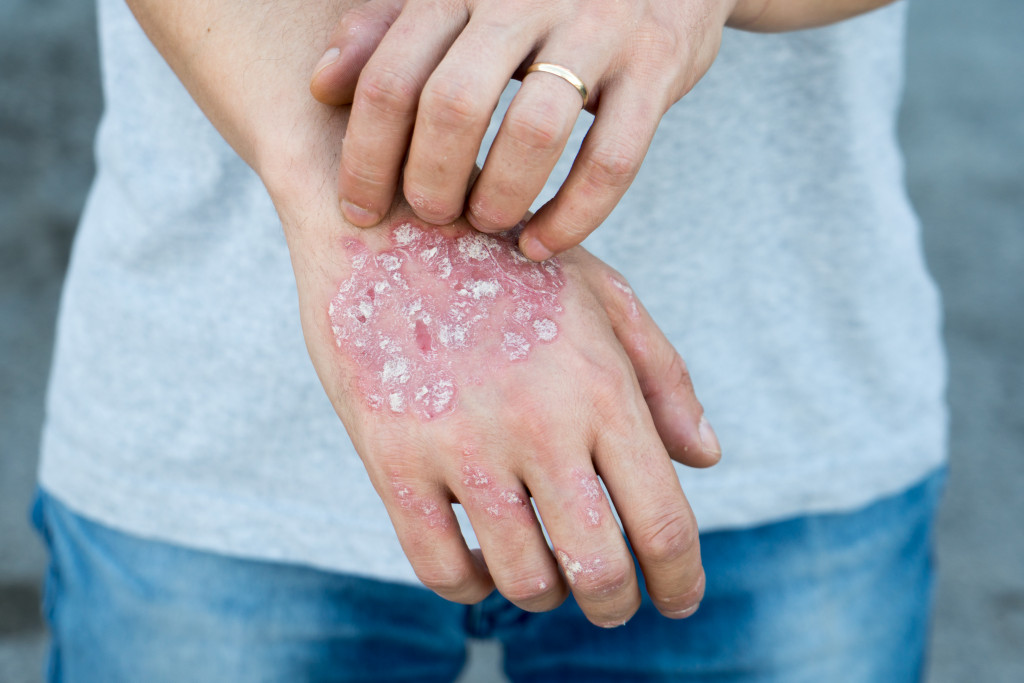The skin is arguably one of the essential organs in the human body. It acts as a barrier to protect us from the outside world, helps regulate our body temperature, and even synthesis vitamin D. However, when skin is damaged, it can lead to a host of problems.
There are many different types of skin damage, but some of the most common include burns, cuts, and scrapes. Burns can be caused by several things, including exposure to extreme heat or cold, chemicals, or radiation. Cuts and scrapes are usually the results of an injury, such as falling or being cut with a sharp object.
Aside from skin damage, various skin conditions also exist. The most common are acne, eczema, and psoriasis. Acne is a skin condition characterized by the presence of pimples, blackheads, or whiteheads. Eczema is a condition that causes the skin to become dry, cracked, and itchy. Psoriasis is a chronic condition that causes the skin to become red and scaly. Among the three, psoriasis is considered to be the worst. Here’s everything you need to know about psoriasis.
What is Psoriasis?
As mentioned earlier, psoriasis causes people’s skin to be red and scaly. However, that isn’t all. Psoriasis is a chronic, inflammatory disease that affects the skin and the joints. It typically begins in early adulthood, but it can develop at any age. The exact cause of psoriasis is unknown, but many medical professionals believe it to result from genetic and environmental factors.
There are four main types of psoriasis:
- Plaque psoriasis: This is the most common type, characterized by the presence of raised, red patches on the skin that are covered with a white or silver scale. These patches are often itchy and painful.
- Guttate psoriasis: This type is characterized by small, pink spots on the skin. It often affects children and young adults.
- Inverse psoriasis: This type is characterized by red patches on the skin that are not covered with a scale. It often affects the armpits, groin, and other areas where skin rubs together.
- Pustular psoriasis: This rare type is characterized by blisters filled with pus. It can be challenging to treat and often affects adults.
The Effect of Psoriasis on Daily Life
Psoriasis can have a significant impact on a person’s quality of life. This is because it can affect various parts of your daily life, the most essential of which is sleep.
Sleep
Sleep is essential for our overall health and well-being. However, people with psoriasis often have difficulty sleeping due to the itchiness and pain of their condition. A study showed that people with psoriasis are more likely to experience sleep deprivation than those without the disease.
Work
Aside from sleep, psoriasis can also affect a person’s ability to work. The visible symptoms of psoriasis can make it difficult for people to feel confident in their appearance, leading to anxiety and depression. In severe cases, psoriasis can even prevent people from working altogether.
Social Activities
Psoriasis can also take a toll on a person’s social life. The visible symptoms of the condition can make people feel self-conscious and anxious in social situations. This can lead to social isolation and depression.

How is Psoriasis Treated?
There is no cure for psoriasis, but many treatments can help ease the symptoms. The most common include topical creams and ointments.
Ointments and Creams
Topical treatments are the most common type of treatment for psoriasis. They are applied directly to the skin and are usually the first line of defense against the condition. Topical treatments include corticosteroids, vitamin D3 analogs, retinoids, coal tar, and moisturizers.
Corticosteroids
Corticosteroids are anti-inflammatory medications that can be applied directly to the skin or orally. They are typically used for short-term relief of psoriasis symptoms.
Botox
Various cosmetic treatments have also shown to have positive effects on psoriasis. For example, people who have undergone botulinum toxin (Botox) treatment have shown fewer symptoms of psoriasis, with some completely recovering from it after receiving multiple treatments. However, medical professionals are still studying how people can effectively use it against such a disease.
Vitamin D3 Analogs
Vitamin D3 analogs are a medication that can be applied to the skin or taken orally. They work by slowing down the growth of skin cells.
Retinoids
Retinoids are a medication that can be applied to the skin or taken orally. They work by reducing inflammation and the production of skin cells.
Coal Tar
Coal tar is a natural product that is made from coal. It can be applied to the skin or taken orally. It works by reducing inflammation and scaling.
Moisturizers
Moisturizers are a type of treatment that people can apply to the skin. They work by keeping the skin hydrated and preventing it from becoming dry and cracked.
UVB Therapy
UVB therapy is a type of treatment that uses ultraviolet light to slow down the growth of skin cells. It is typically used for people who have moderate to severe psoriasis.
Psoriasis is a condition that can significantly impact a person’s quality of life. Unfortunately, it has no cure, but some treatments can severely decrease the disease’s symptoms. You can live a normal life by doing these treatments, despite having this chronic skin condition.
